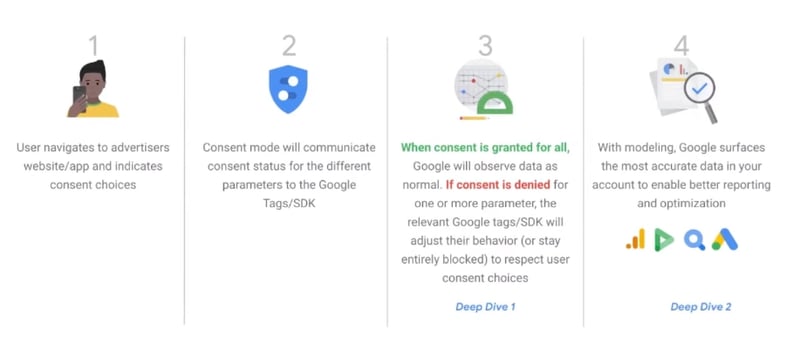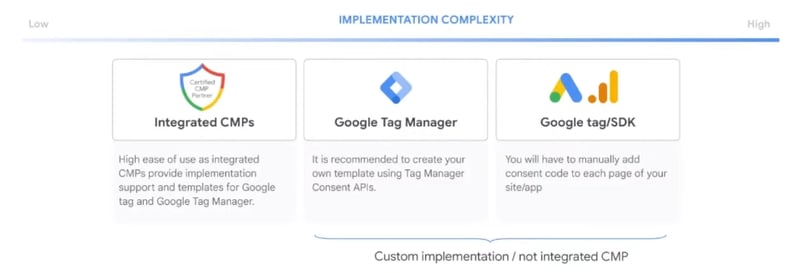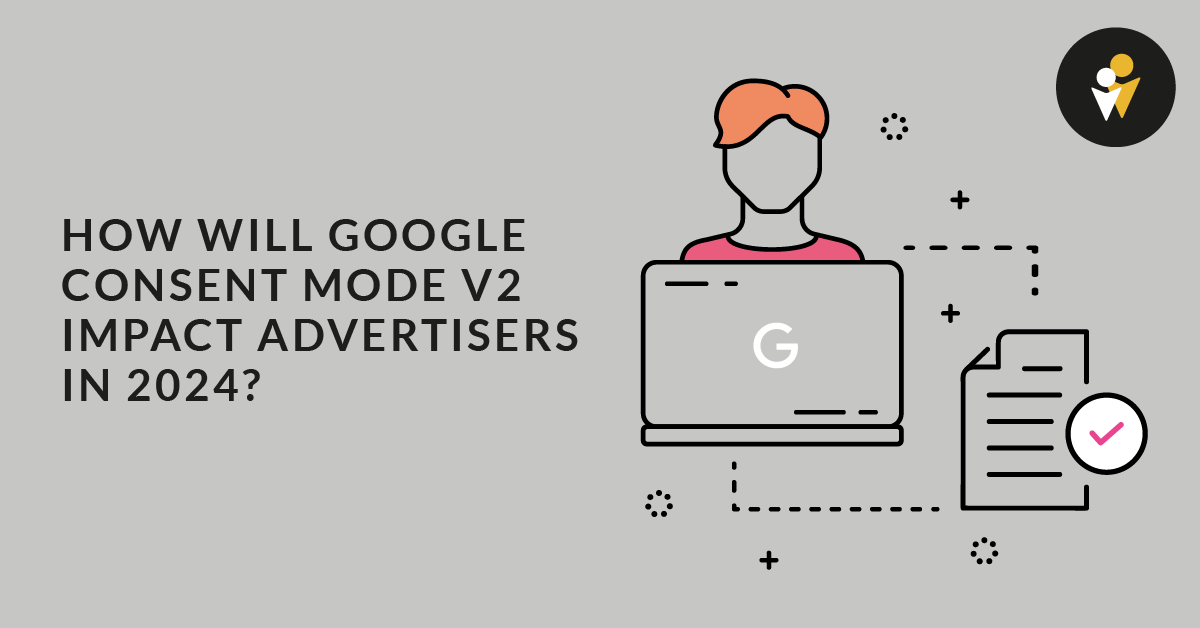Overview
In late November 2023, Google held a presentation to discuss upcoming changes to Consent Mode. Consent Mode was released by Google in 2020 as a beta tool to allow advertisers to pass cookie consent responses on websites directly to Google. It was released as a step toward more respectful privacy practices and better compliance with data protection legislation.
In the presentation, Google introduced Consent Mode v2, which aims to expand the levels of user consent advertisers can pass to its tools like Google Ads and Google Analytics 4. The extra consent statuses allow Google Ads and Google Analytics 4 to "model" data for users who do not consent to certain cookies, resulting in reduced traffic loss in reporting and better conversion tracking.

The full presentation can be viewed on YouTube.
Leveraging Google Consent mode is best handled by using a Cookie Management Platform (CMP) coupled with Google Tag Manager. There are numerous CMPs on the market that work with Consent Mode, and at PIC, we typically recommend clients use Cookiebot due to its integration capabilities with the HubSpot CMS. Cookiebot is also a solid choice for websites built on WordPress, Shopify, and various other platforms. For Consent Mode setup instructions, it's best to refer to the documentation provided by the CMP used on your specific website, as well as the documentation provided by Google.

Two Methods of Implementing Consent Mode
Consent Mode v2 can be rolled out to varying degrees with Google's addition of new consent parameters that can be sent from a CMP, each bringing some modeling benefits in Google Ads and Google Analytics 4.
Advanced Consent Mode
Here, Google tags are triggered before user interaction with the consent banner, even if consent is denied. Tags adjust behavior based on user choice, allowing collection of cookieless pings for more accurate data modeling.
Basic Consent Mode
Here, Google tags are activated only after the user's consent. No tags are triggered if consent is denied, ensuring no information about the user is stored.
Impact on Advertisers in 2024
During the presentation, Google said that, starting in March 2024, advertisers using Google Ads and Google Analytics 4 will need to begin using Consent Mode with Google tags to continue populating audiences in those tools with users from the EEA (European Economic Area). Those audiences are used for remarketing purposes, which means, starting in March, Consent Mode is a requirement to continue retargeting ads to EEA users.
According to Google, if companies opt not to configure Consent Mode, things will continue to work as expected between Google Ads and GA4. They simply will not be able to add EEA users to their audiences, and those businesses will not benefit from some of the additional modeling benefits that come with Consent Mode v2. However, Google has left some of the details of their Consent Mode requirements vague, leaving some to question if tools like GA4 will also be hindered when it comes to tracking EU site visitors come March 2024.
Even if your company does not remarket or even target your products and services to EEA residents, it's worth noting that Google hinted at these types of changes being rolled out to more regions in 2024 as well as other Google tools. While not explicitly stated, this could mean that Google may begin requiring Consent Mode to be used to gather audience data for some U.S. residents, as several states have rolled out data privacy legislation of their own (e.g., California with CCPA).
With Google nudging businesses on future requirements regarding user consent, 2024 is the time for businesses that have not yet implemented a cookie banner to do so.
